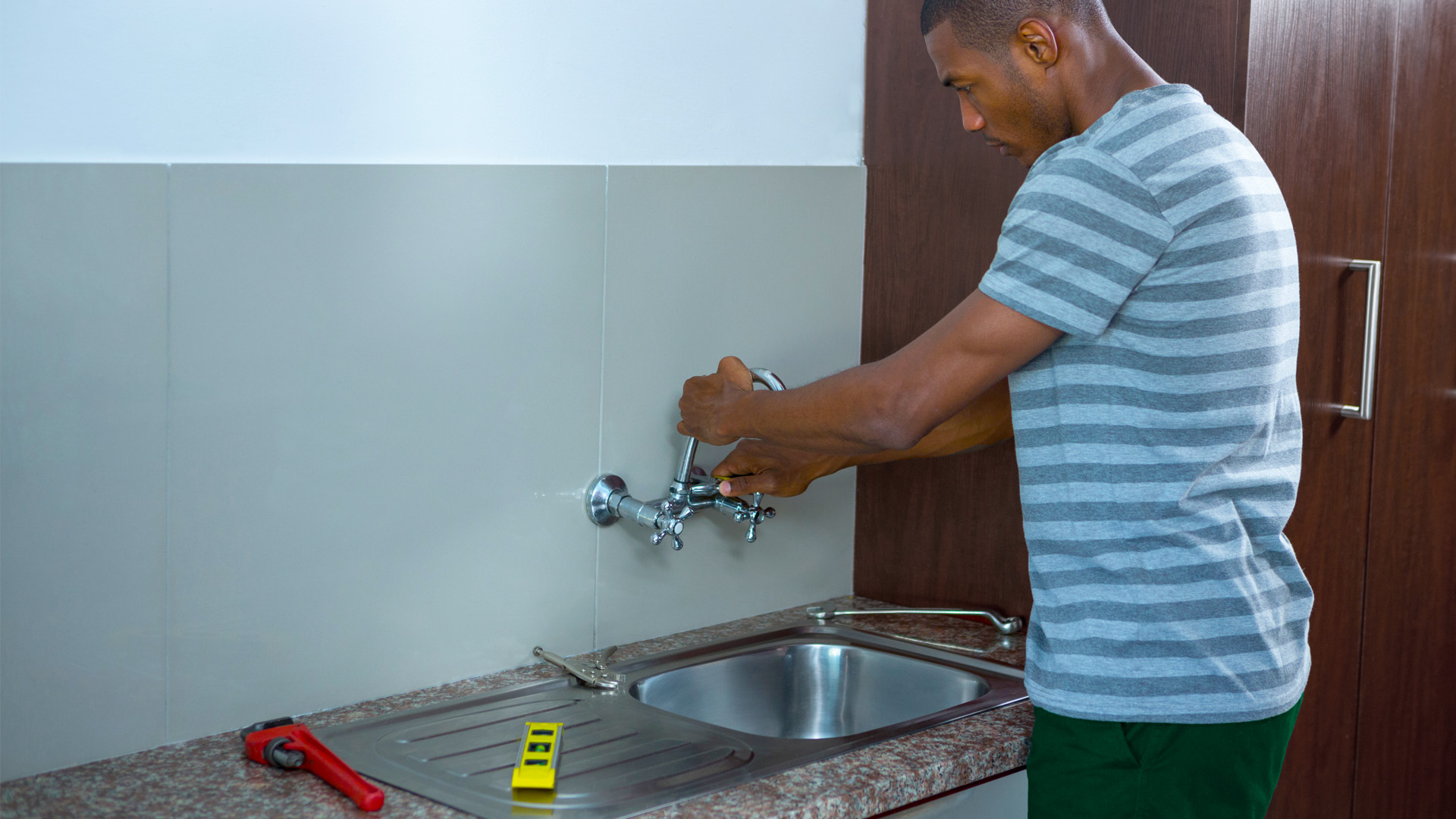Like electricity, water is a scarce resource, and we need to use it sparingly. This is everyone’s responsibility and requires long-term commitment. But what does that mean, in practice? How do we change the way we use water?
We need to find ways to use as little water as possible but still manage to get things like cleaning and washing done at home. And if that seems like too much effort for a vague, undefined goal like ‘the good of society’, consider a more obvious motivation – your wallet.
Along with everything else, the cost of municipal water seems to go up every year. That’s not likely to change soon, as tough economic times continue, and the cost of water could rise even more steeply if local authorities fail to address several urgent challenges affecting their capacity to supply residents with reliable, safe water.
Simply put, using less water will help to lower your monthly water bill – and those savings could make it easier for you to afford other goods and services that constantly get more expensive. Plus, you’ll be helping to conserve South Africa’s precious water resources.
Here are a few practical tips to help reduce your water bill:
1. Check for leaks all over
A dripping tap can waste 30 litres a day and kilolitres of water a year. A leaking or broken pipe underground, where you won’t notice it immediately, can be even more expensive – it could double or triple your water costs. Check for hidden leaks anywhere on the property by closing all the taps, warning your household not to flush any toilets, and monitoring your water meter for 20 minutes to an hour – there should be no movement in the reading at all.
If the reading creeps up slightly over an hour, you have a leak somewhere. Check for any leaky taps and replace their washers immediately. If your meter still shows that there’s a leak somewhere, get a professional in to check the pipes from your meter to the house and inside. If the leak is in the meter itself or outside your property, contact your municipality – they are responsible for repairs to prevent water wastage.
Your ability to collect free rainwater will depend on your circumstances and budget
If you can afford to, it’s a good idea to fit aerators or flow-reducing valves to your taps and install low-flow showerheads too, to help you use less water. Also examine your water bill carefully every month to make sure you aren’t being overcharged in error – and so that you notice any sudden increases in consumption that could indicate a leak.
2. Change your water-use habits
Don’t leave a tap running while shaving, brushing your teeth or washing your hands. Wash your car with a bucket instead of a hose. Shower instead of taking a bath, and bathe your little children together. A dishwasher generally uses less water than washing dishes by hand in the sink, but only if you wash a full load every time – running the dishwasher half-full wastes water, electricity and your money.
3. Install dual-flush toilets
Flushing a toilet can use more than 10 litres of water. It’s extremely wasteful (and damaging to sewerage or septic tank systems) to use it as a trash bin throughout the day – with repeated flushes to get rid of tissues, cotton swabs, face wipes or anything except human waste. Get everyone in your household out of this habit, and flush only when required for hygienic sanitation.
A brick or sealed plastic bottle of water inside your cistern is a low-tech solution that reduces the amount of water used in every flush. If you can, install a toilet with dual flush valves as these should cut your water use significantly. These valves give you half-flush and full-flush options – using 3 litres or 6 litres respectively – so you only need use the full-flush option when required.
4. Be waterwise in your garden
Well-tended gardens bring beauty and tranquillity to our homes, but you can save if you stick to drought-resistant indigenous plants. Most nurseries have a selection of plants, shrubs and trees native to the area, so make enquiries at your local garden shops. Regional rainfall patterns should be enough to sustain an indigenous garden and you’ll only have to top it up with occasional watering.
If you do keep non-indigenous plants in your garden, either for decoration or because you grow your own fruit and vegetables, ask your nursery for advice on their water needs and how to avoid either underwatering or overwatering them. Planting them correctly – in the right type of soil, with the optimum ratio of sunlight and shade and grouped according to their water needs – can help reduce the need for irrigation and keep the plants healthy.
When you do water your garden, drip-irrigation systems use less water than sprinklers and lose less to evaporation – which is also worse in the midday heat. Water your garden an hour or so after sunrise or before sunset to lose less to evaporation and make more water available to your plants.
5. Harvest rainwater
As with our first 4 tips, your ability to collect free rainwater will depend on your circumstances and budget. You can do it inexpensively on a small scale to make some savings on your water bill, using the water only on your garden – for example, by placing plastic drums beneath all the gutter downpipes, sealed with mesh and netting against debris and mosquitos, and using a hose to transfer that water into your drip-fed irrigation system when required. Depending on how level or sloping your property is, however, you may also need to invest in a manual or electric water pump to make this method work.
Nedbank has partnered with Cashbuild to make getting credit for home improvements easy and affordable
But if you can afford to renovate your house, you could invest in a large water tank fed by all your downpipes and set up a rainwater collection and storage system that provides enough free water for both household and garden use. If you want to use rainwater for drinking and cooking, you’ll also need the right filtration and purification system in place, so get expert advice on what your circumstances and budget will allow. Again, depending on where your storage tank is and where you need to use the water, you may also need to install a pump to ensure decent water pressure.
6. Recycle grey water
Like harvesting rainwater, you can try recycling grey water at low cost on a small scale, but it takes quite a lot of effort. Grey water – the used water from sinks, showers, bathtubs, dishwashers, washing machines and other cleaning processes – can save you money if you use it to flush toilets and water your garden. Be sure to use only eco-friendly, biodegradable cleaning products – otherwise they can contaminate the soil and affect food taste or safety.
However, as many of us have discovered during droughts and water restrictions, hauling buckets of water from the bathtub to the toilet cistern or down to the garden is a tedious chore, and probably not one you want to do several times a day. It would require much less effort if you could integrate recycled grey water into your current plumbing system.
This could involve extensive renovations, however, so it’s a feasible solution only for those with the finances or access to enough credit. If you’re in that situation, get expert plumbing and building advice and research the available grey water solutions thoroughly before starting the project – you’ll probably need a system to monitor the quality of your grey water, too. This may not be a solution for every homeowner, but like rainwater harvesting, it’s one that we think sectional-title property developers certainly should consider integrating into future housing developments.
You may be able to adopt all these tips, or perhaps your situation only allows you to try 2 or 3. That’s not important – what matters is becoming more mindful of how we use water and how not to waste it. Adopting waterwise habits means saving water wherever we can, so that all those savings add up – together, we can help ease pressure on our resources and be rewarded with lower municipal bills. For more water saving tips at home check out Nedbank’s water savings guide.
Nedbank has partnered with Cashbuild to make getting credit for home improvements easy and affordable. You can apply for a personal loan for home improvements in-store, so you can work out exactly what all the materials that you need from Cashbuild will cost before you apply.








